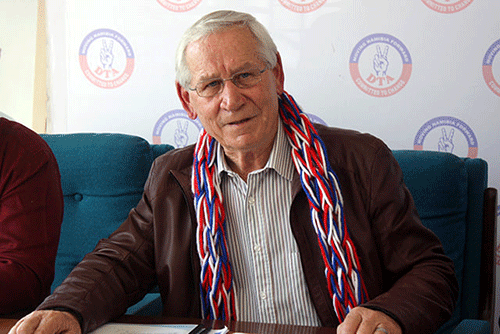The Targeted Intervention Programme for Employment and Economic Growth (TIPEEG) came under criticism in the National Assembly last week. Popular Democratic Movement (PDM) parliamentarian Nico Smit disregarded the programme, saying it never delivered any fruits for the domestic economy.
A three-year initiative, TIPEEG was adopted to effectively reduce the country’s high unemployment rate, mainly through expediting the implementation of government programmes and projects with the potential to create huge numbers of direct and indirect jobs, also while supporting strategic economic sectors.
“Give us an audit report outlining how the money was spent. Where are the jobs you created? And, if you created the jobs you are claiming, why are we having an unemployment rate close to 60%?” Smit questioned.
During her response, deputy finance minister Maureen Hinda-Mbuende said the targeted programme created over 102 000 jobs, of which over 15 800 were permanent, while over 87 000 were temporary as a result of public works projects. According to her, the period in which the programme was carried out was the only time in the history of Namibia that such a large number of jobs were created under the public works programme.
“TPEEG ended on 31 March 2014, and it was rolled over three years as a targeted intervention programme following the employment summit that was held in 2010. The total budget outlay of TIPEEG, including public works, was about N$14.7 billion. Out of this total allocation, the government spent N$13.1 billion, representing an overall execution rate of 88.9%,” she explained.
She added that domestic economic growth was on an average of 5.5% from the period of 2011 to 2014. “It was one of the historic growths in the history of Namibia when gross income per capita increased by more than 60%”.
The deputy minister said the objective of the programme was to create employment, both permanent and temporary, by focusing on the selected economic sectors and public works to ensure a speedy implementation by introducing suitable conditions and modalities under which capital projects were to be implemented, and to put in place the required infrastructure necessary for economic growth. Thus, she believes, the project delivered according to its mandate.
In the first financial year (2011/2012) of the project, a total budget of N$5.8 billion was allocated, of which N$4.8 billion was spent and 39 607 jobs created. For the financial year 2012/2013, a budget of N$4 billion was allocated, of which N$3.5 billion was spent and a reported 35 821 jobs were created. For the 2013/2014 financial year, which was the final year, a total budget of N$5 billion was allocated, of which N$4.7 billion was spent and 27 312 jobs were created.


